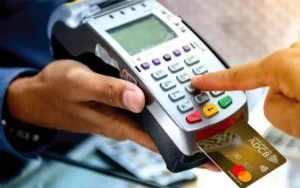The ongoing cash scarcity in Nigeria has worsened economic challenges for citizens already grappling with high prices of goods and services. Many banks across the country are rationing cash, making daily transactions difficult for Nigerians.
Call for Urgent Action
The House of Representatives has urged the Central Bank of Nigeria (CBN) to address the issue swiftly. The cash withdrawal limits, ranging from ₦5,000 to ₦10,000 for over-the-counter (OTC) and ATM transactions, have disrupted economic activities and imposed hardships on Nigerians.
Cash Withdrawal Challenges
Bank customers nationwide shared their struggles. According to bank officials, the scarcity is due to limited cash supply from the CBN and reduced cash deposits by customers. Despite CBN’s directive for banks to ensure smooth cash disbursement, many banks fail to meet this requirement.
In a recent circular, the CBN asked Nigerians unable to withdraw cash to report the issue through designated channels.
Lagos Long queue
In Lagos, banks are limiting withdrawals and many ATMs are out of service.
- Ikotun Area: A new-generation bank restricted ATM and OTC withdrawals to ₦10,000 each.
- Festac Town: Customers faced limits of ₦10,000 OTC, with some ATMs not dispensing cash at all.
- Mile 12: Some banks allowed withdrawals of up to ₦40,000 OTC, while non-customers received only ₦10,000.
One frustrated customer, Yetunde Usman, shared, “I stopped using ATM cards after three were swallowed this year. Now I depend solely on OTC withdrawals.”
Abuja: Limited Access to Cash
Investigations in Abuja showed customers being restricted to ₦5,000–₦10,000 withdrawals per transaction. Many ATMs were either empty or dispensing limited amounts. Bank staff blamed the scarcity on reduced cash supply from the CBN.
Ondo State: POS Agents Step In
In Ondo State, banks allowed ₦10,000–₦50,000 OTC withdrawals, but ATMs often had no cash. Customers were advised to use Point of Sales (POS) agents, who charge extra fees due to the scarcity.
A bank official explained, “The limited cash provided by the CBN is insufficient to load all ATMs, causing widespread shortages.
In Ekiti State, customers reported that banks allowed withdrawals of only ₦20,000–₦30,000. Rebecca Jinadu, a POS operator, stated, “My bank only dispenses ₦20,000 OTC, but I rely on ATMs to access higher amounts.”
Oyo State: Customers Wait for Hours
In Ibadan, customers expressed frustration over long queues and strict limits of ₦10,000 OTC and ₦20,000 via ATMs.
Small business owner Femi Adekunle said, “The limits are too low for business operations. I can’t function with just ₦10,000.”
Another customer, Fatima, shared her disappointment, “Every time I visit the bank, I leave with less cash than needed. It’s exhausting.”
Ogun:
Abeokuta residents are also feeling the pinch. Trader Funmi Adelani lamented, “I needed ₦150,000 for my business but could only get ₦50,000. This scarcity is killing my business.”
ATMs in the area were dispensing a maximum of ₦40,000, but customers from other banks were limited to ₦10,000 per withdrawal.
Causes of Cash Scarcity
Bank staff attributed the scarcity to:
- CBN’s limited cash distribution: Many banks receive insufficient funds to meet customer demands.
- Low cash deposits: Customers prefer giving cash to POS agents instead of depositing it in banks.
Rising POS Charges
POS operators have raised their fees, with some charging ₦200 to withdraw ₦5,000, citing increased costs to source cash from filling stations or electricity distribution offices.
Abia State:
Bank customers in Abia State faced even tighter restrictions, with some branches limiting OTC withdrawals to ₦5,000. Customers expressed frustration, stating that these limits are inadequate for daily needs, especially given the high cost of living.
Despite the Central Bank of Nigeria’s directives to ease the situation, the cash scarcity persists, disrupting businesses and personal transactions. Nigerians continue to hope for a swift resolution as economic activities remain stalled due to limited access to cash.



